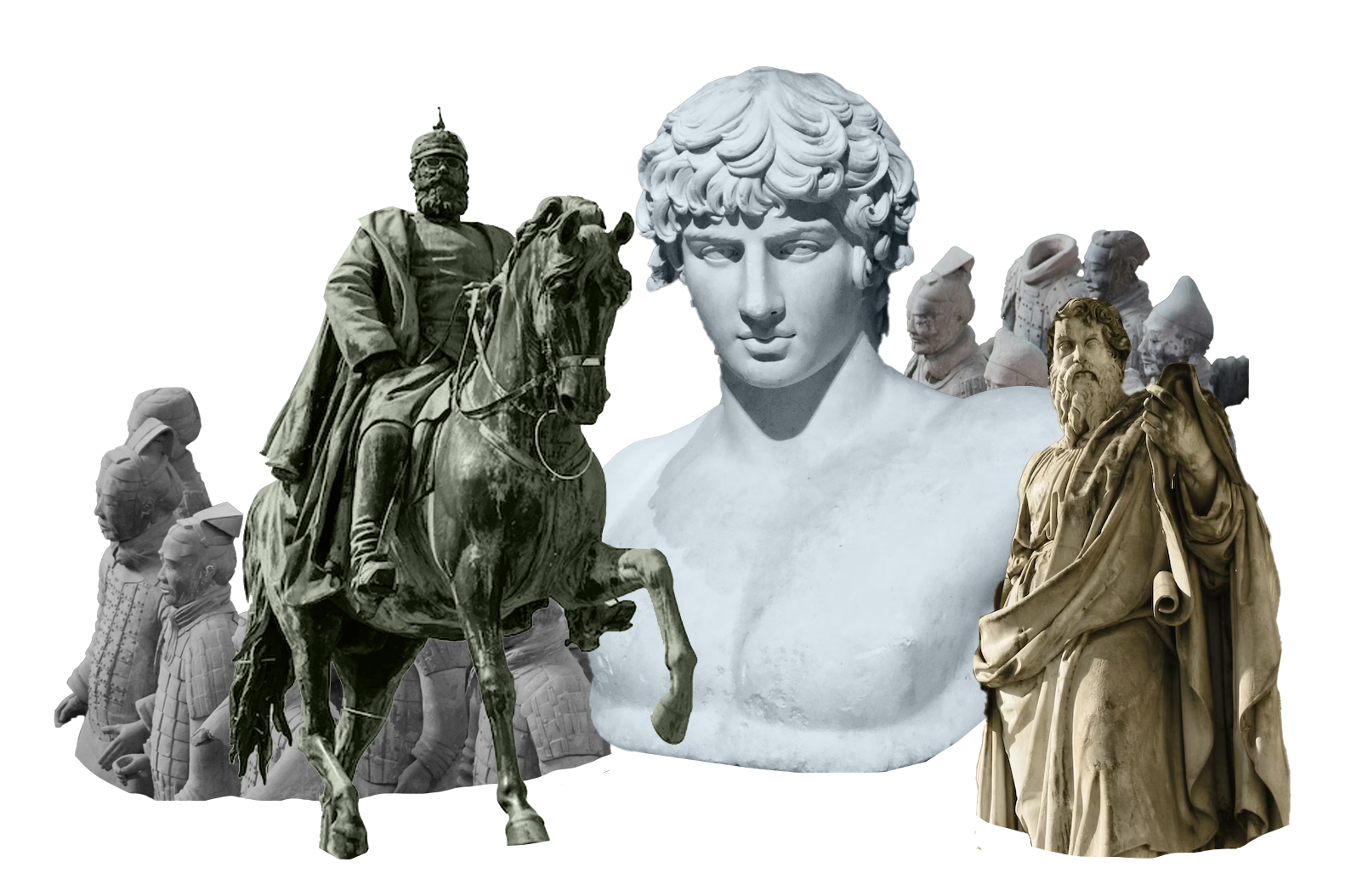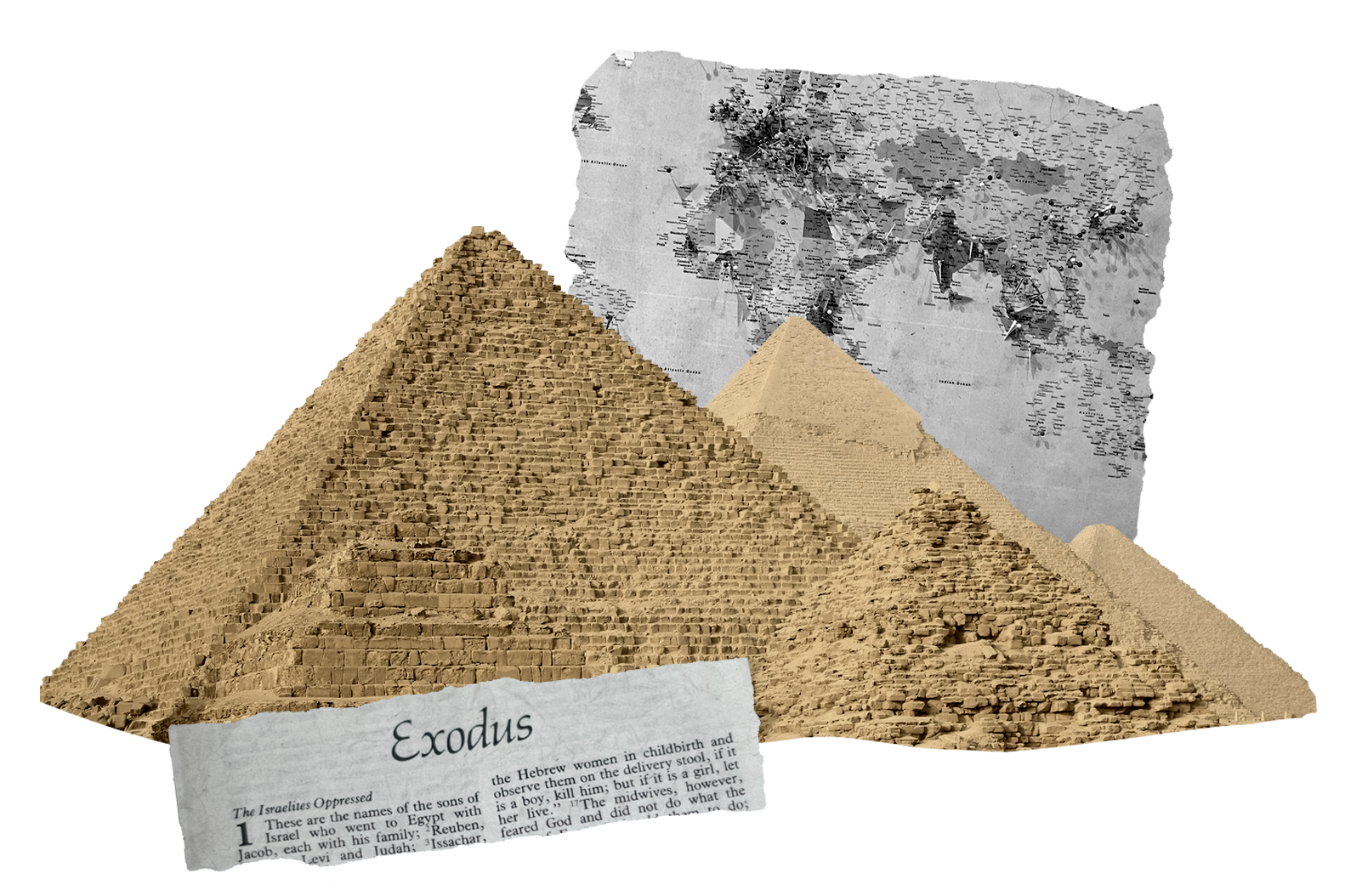Sometimes I do wonder, when we read through the Bible, whether the significance of kingdoms and empires are lost on us modern readers.
It’s common for believers today to use the word “kingdom” to reference how we do church and how we live our Christian life.
For example, thinking biblically might be called having a “kingdom mindset”; serving in church is “serving His Kingdom”.
Yet the meaning of the word “kingdom” doesn’t carry nearly the same weight as it did during the time when some books of the Bible were being written.
Even though the kingdoms and empires of biblical times (and those from the historical periods of the medieval and early modern periods, for that matter) seem to be rather quaint and distant from us, these were actually power structures that carried so much more authority, awe and terror than we realize.
This is something I’ve come to appreciate as I’ve been reading quite a few history books recently on different empires of the past (yes, it’s one of my main hobbies – so nerdy, I know).

Whether it was Persian, Roman, British, Belgian, French, Portuguese, Russian, German, Ottoman, Mongol or Japanese, there were many empires that grew in power and wielded it in lands beyond their shores.
These often inflicted much terror and oppression before eventually falling in one way or another.
The Bible speaks to the rise and fall of these great empires; its message essentially declares that the Kingdom that Jesus proclaimed will reign eternally supreme over these mighty but ultimately temporal empires.
And what I argue, is that the vanity of these human empires also parallels the vanity of many of our individual human ambitions.
Kingdoms and empires in Scripture
It’s worth recognising that the earthly kingdoms and empires play a big role in contextualising the overall message of Scripture. They are part of the backdrop against which the overall narrative of God’s redemption story for our world plays out.
First off, it’s worth noting that from King Saul’s time until the Babylonian exile, Old Testament Israel was a kingdom itself that had split in two after King Solomon’s death.
These kingdoms, particularly the Northern Kingdom, seemed to have more wicked, corrupt and disobedient kings.
The kings who lived righteously and sought genuinely to honour the Lord were generally a minority.
The Lord made it clear, in a verse from Isaiah, that He wanted Israel to be a light to the nations.
It was why He chose Abraham, and why He led Abraham’s descendants out of subjugation of Egypt in dramatic fashion, while they were under the tyrannical grip of Pharaoh.
Indeed, Pharaoh’s kingdom is probably the starkest Old Testament example of the evil behind earthly kingdoms.
This evidently would have meant that they were not to follow the example of earthly kingdoms around them that resorted to materialism, idols, conquest and subjugation.
They were meant to display a different, better example of holiness, compassion and humility.
Sadly, the Old Testament narrative shows us that the people of Israel often did not heed this call, in part because they resembled these vain earthly kingdoms.
And just as God consistently pronounced judgment on earthly kingdoms like Egypt, Edom and Assyria, He also had to send judgment on His own chosen people who’d rebelled against His ways to choose their own selfish paths instead.

Meanwhile, the presence of the Roman Empire is a core part of the context behind the New Testament narrative.
After all, our Lord Jesus actually lived within the confines of this empire His whole life! He was born under its authority (symbolised by King Herod) and suffered torture and ultimately crucifixion at the hands of its authorities too.
In many ways, His miracles and Word can be viewed as an act of subversion against this very empire that declared itself the “eternal city” and its own emperor as a deity to be worshipped.
The fact that Jesus declared himself as God’s own Son – and that the apostles and the early Church unequivocally joined in that claim – was a challenge to Caesar’s lordship.
Lastly, understanding earthly empires is important to the backdrop of the last, and sometimes the most confusing book of the Bible, in Revelation.
Jesus’ message to the seven churches in Revelation 2-3 are directed to people under the rule of suffocating imperial authority, either encouraging or rebuking these churches and urging them to stay faithful to Christ amid tough times.
Meanwhile, examples of apocalyptic symbolism, such as Babylon in Revelation 18, are a striking representation of the pride, corruption and ultimate downfall of worldly kingdoms and empires.
What’s the unifying theme in the Bible’s discussion of earthly kingdoms and empires?
First, the very existence of such empires is, in some sense, a sign of human rebellion against God’s perfect purposes for His world.
Secondly, these empires are bound to crumble and be humbled by the Lord. Most of all, God intends to re-establish a Kingdom of His own, through Jesus Christ, that will be based on perfect justice and love and be truly everlasting.
Kingdoms and empires in world history
Of course, the perpetual cycle of empires rising, conquering and eventually falling continued far beyond the time when the biblical canon was completed.
Throughout medieval times and well into the modern era, there have been many such empires and kingdoms who have tried to flex their muscles through domination and conquest.
Rest assured, I won’t bore you by listing every single one of them.
Instead, I’ll point out the most interesting and revealing examples of kingdoms and empires who wielded their earthly power and tried to justify it.
In the medieval period, the Byzantine Empire and the Holy Roman Empire, along with other medieval kingdoms in Europe, would wage wars and seek earthly dominion in the name of Christ – even though that is undoubtedly antithetical to the Kingdom Jesus spoke about.
This lust for power led to the bloodshed of the Crusades and to religious wars such as the Thirty Years’ War.
There were also empires from various European nations that built vast global empires from the 16th to the early 20th centuries, like the Portuguese, Spanish, Dutch, German, French, Belgian and especially the British.
These empires were capable of great brutality and would often dehumanise those under their rule.
The main examples of this were the Trans-Atlantic slave trade that they operated, and the doctrines of racial hierarchy they perpetuated and upheld wherever they reigned supreme.
To top it all off, they would justify this means of subjugation by invoking the name of Jesus; it was as if they were holy warriors called on by God to subdue and convert infidels and pagans from “lower” races.

Lastly, it’s worth pointing out how imperialistic desires played a role in both of the World Wars which collectively killed around 100 million people.
The origins of World War I, while notoriously complex overall, came down to the European empires becoming suspicious of each other’s growing power.
This led to a four-year-long conflict between 1914-1918, with many millions of young men being needlessly and tragically cut down.
What has been will be again, what has been done will be done again; there is nothing new under the sun. (Ecclesiastes 1:9)
Meanwhile, the Second World War witnessed two of the most terrifying empires of all time – Nazi Germany and Imperial Japan – brutalising much of Europe and the Asia-Pacific region.
At their peaks, guided by extreme nationalism, totalitarian governments and an unwavering belief in their racial hierarchy, these nations would commit some of the worst atrocities this world has ever known like in Auschwitz and Nanjing.
Surveying the continuity of imperial conquests and wars is a lens into what the Teacher says in Ecclesiastes: “There is nothing new under the sun.”
And I believe that this truth isn’t just exemplified in the broad landscape of world history, but also in the desires of our own lives.
Wars within us
Having read all this, you may be wondering what the point of all these details and insights are.
You might even think it’s just an opportunity for me to get all this historical interest out here on this website. Even if there are biblical lessons and insights and empires, how does it really apply to my own life?
Amidst the vast designs of imperial conquest, as well as that of the petty yearnings we sometimes harbour in our own lives, there is a common theme: idolatry.
I suggest that there is a strong parallel between the selfishness and vanity that fuel human empires and kingdoms, and the selfishness and vanity that sometimes fuel our desires and decisions in our personal lives.
Amidst the vast designs of imperial conquest, as well as that of the petty yearnings we sometimes harbour in our own lives, there is a common theme: idolatry.
Idolatry is elevating the false promises of fulfilment and abundance that this fallen world has to offer, over the truth and love that God has to offer.
One big way human idolatry manifests is through greed for material gain. It’s important to remember that the promise of ready access to vast amounts of material goods and riches heavily fuelled imperialist conquest because goods and riches were what realise rulers’ dreams.
Meanwhile, as individuals, we are also often driven by our craving for material wealth.
Living in a well-off society like Singapore, many of us are lured by the promises of earthly wealth. Cash, cars, condos… all the stuff that the Singaporean dream supposedly promises!
We face great and unrelenting temptation to pursue all these things over God’s Kingdom.

Another key manifestation of human idolatry comes through an undue craving for prestige and power over other people.
Imperialism and kingdoms are probably the most extreme means for anyone yearning for that power — you get to directly rule over millions or even billions of people across many different lands!
Even for those of us who don’t get to rule over empires, there are ways where we still idolise prestige and power for ourselves.
As young people, we might prioritise our academic credentials above anyone else, or anything else that might potentially beef up your CV.
We may also be lured in by the desire to appear attractive before our peers on social media or in other ways that reflect a higher “status”.
These are desires that are also present in older life stages of life.
… true greatness is humbling ourselves and serving others.
However, Jesus clearly speaks against this mentality of approaching life.
When the disciples James and John asked Jesus who among them would receive more glory, He urged them to not follow the examples of Gentile rulers. Instead, true greatness is humbling ourselves and serving others (Mark 10:35-45).
If all of us, regardless of where or what station of life we come from, followed these directives, our world would be a much better and fairer place.
The contest between Christ and Caesar
There was a famous historian who, decades ago, made this remarkable comparison: amidst the story of human civilisations, “Christ and Caesar had met in the arena, and Christ had won”.
As Christians, we believe in Christ’s victory because as God’s only begotten Son, He came down to live a perfect human life and die to forgive our sins, resurrecting from the dead to secure His final triumph over the powers of darkness.
We also remain confident that Jesus will come back to earth one day, to complete the renewal of all creation and complete the establishment of His eternal kingdom – thus consummating His victory.
With this faith, it is our duty to reject what Caesar represents theologically – the promise of earthly glory and fulfilment aside from the proper means that God has laid out for us.
Praise the Lord that we have the example of Jesus to follow – and that He has a much better path for how we live!
- What does “kingdom” mean to you?
- How has that changed as a result of this article?
- Practically speaking, what does having a kingdom mindset mean for you this week?









